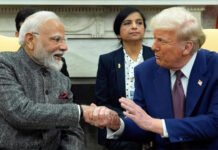A fresh diplomatic row erupted in South Asia after Pakistan accused India of orchestrating a “proxy war” through Afghanistan — a claim the Taliban government has flatly denied, calling it “baseless” and “politically motivated.”
In a press statement issued in Kabul, Afghanistan’s acting Defense Minister Mullah Mohammad Yaqoob Mujahid rejected Islamabad’s remarks, stating that “Afghanistan’s soil will not be used against any neighboring country.”
“Pakistan’s allegations are unfounded,” Yaqoob said. “We have full control over our borders and our internal security. No external actor, including India, is influencing our territory for hostility.”
Pakistan’s Defense Minister Khawaja Asif had earlier accused India of “using Afghan soil to destabilize Pakistan,” reigniting long-standing suspicions between the two nuclear-armed neighbors.
The Taliban’s response comes amid reports that India has upgraded its technical mission in Kabul to a full embassy, signaling deepening engagement with the war-torn nation.
“India is quietly rebuilding diplomatic trust with Kabul,” said South Asia analyst Zafar Khan. “Unlike the West, New Delhi never completely withdrew from Afghanistan — that continuity gives it leverage.”
For Pakistan, the accusation serves a dual political purpose: diverting attention from internal unrest and justifying its security posture along the Afghan border, where sporadic clashes have intensified in recent months.
Meanwhile, India’s Ministry of External Affairs declined to comment officially but reiterated that India supports peace, stability, and development in Afghanistan.
Observers believe the latest dispute reflects a larger geopolitical shift: India’s emergence as a stabilizing power in the region and Pakistan’s waning influence over Kabul.
“The balance of power in South Asia is clearly shifting,” said former diplomat Vivek Katju. “Pakistan is losing its traditional leverage, while India is cautiously filling the vacuum.”
The ongoing narrative underscores how Afghanistan — long a theater for regional rivalries — continues to shape the political calculus of South Asia.
As tensions simmer, the Taliban’s assertion of independence marks a new phase in the region’s evolving power structure, one that may redefine the relationships among India, Pakistan, and Afghanistan for years to come.















